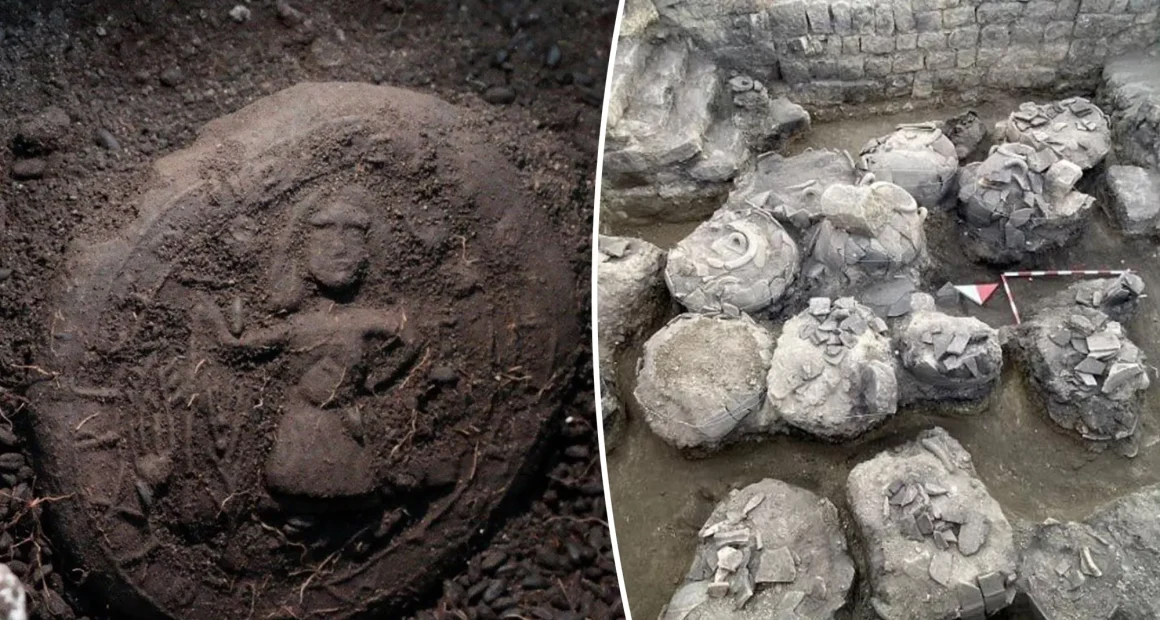Archaeologists have uncovered an extraordinary relic of early Christianity: a 1,200-year-old burned loaf of bread bearing an image of Jesus Christ.
The Karaman Governorship in south-central Turkey announced the discovery in a Facebook post on October 8.
Dating to the 7th or 8th centuries A.D., the loaf is one of five carbonized breads recently unearthed at the Topraktepe archaeological site, formerly the ancient city of Eirenopolis.
Excavation photos reveal a faint depiction of Christ on the blackened bread, accompanied by the inscription, “With gratitude to the Blessed Jesus.”
Officials noted that the image does not follow the traditional Christ Pantocrator iconography—commonly used in Byzantine and Eastern Orthodox art—which typically portrays Christ raising his right hand.
Rather than following traditional iconography, Christ was depicted as a sower or farmer, which officials say reflects “the symbolic importance of fertility and labor in the religious thought of the period.” Archaeologists also discovered other symbols on the loaves, including one that appears to feature the Maltese Cross.
“The fact that the breads survived through carbonization demonstrates exceptional preservation conditions,” the Karaman Governorship said in a Facebook post. Officials added that specialists suggest the loaves may be examples of “communion bread,” or Eucharist bread, used in early Christian rituals, calling them “among the best-preserved examples ever identified in Anatolia.”
“Specialists suggest that these finds may be examples of ‘communion bread,’ or Eucharist bread, used in early Christian rituals,” the Karaman Governorship’s post read. The loaves are just a few of many remarkable early Christian discoveries in the Anatolia-Caucasus region over the past year.
In 2024, officials announced the uncovering of one of the world’s oldest Christian churches in Armenia. The Artaxata church dates to the 4th century, the same period when Armenia officially adopted Christianity. Meanwhile, in Olympus, an ancient Lycian port city in Turkey’s Antalya province, archaeologists recently excavated a 5th-century Christian church featuring an inscription that reads, “Only those on the righteous path may enter here.”










